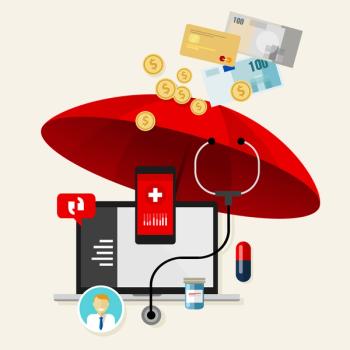
Technology
Latest News

Latest Videos
Podcasts
CME Content
More News

Telehealth, especially for behavioral health, has created new opportunities for dishonest individuals to file fraudulent claims. Health plans can take steps to stop the fraud before it happens.

Medi-Cal, California's Medicaid program, has contracted with Pear Therapeutics for members in 24 counties to participate in an outpatient program for stimulant use disorder.

Medicaid officials of 44 states (including the District of Columbia) responded to a KFF survey about policies and trends relating to telehealth delivery of behavioral health services. Officials reported high utilization rates of telehealth services for behavioral health purposes since the beginning of the pandemic and plan to continue telehealth expansion permanently.

Preventive care, health insurance literacy and a digital health shakeout are in the crystal ball.

The Ongoing Battle to Improve Access to Care Through Digital Health, per Ramin Bastani of Healthvana
In this week’s episode of "Tuning In to the C-Suite," Briana Contreras, editor of Managed Healthcare Executive, spoke with Ramin Bastani, CEO of Healthvana.

What does it take for a healthcare organization to effectively expedite and achieve a digital transformation? Start with the fundamentals, like having an integrated transformation strategy with clear goals across the enterprise, highly visible and vocal top-down leadership, and exceptional tactical talent for implementation.

39% of healthcare industry professionals expect investment in emerging technologies to decrease due to inflation and rising costs.

Some telemedicine software is so complex that it can lead to repetitive, mundane processes that are prone to frustration and mistakes.

Leading health providers are implementing AI to improve patient and staff safety and quality, allowing them to accomplish their technological innovation goals for better use of resources, with higher satisfaction.


Many prior authorizations requests still come in by fax. Natural language processing and artificial intelligence can extract and use information from faxes.

The metaverse could transform healthcare if industry leaders can find a way to wrap their minds around it.

If virtual care is achieve meaningful health outcomes in a primary care setting, it must be practiced within a bona fide hybrid approach.

The confusing, data-intensive world of getting help with medical bills has become a fertile territory for software developers.

Women traveling out of state for a medication abortion may wind up using telehealth.

There are many misconceptions about healthcare technology, but you can improve your organization’s approach to IT by clearing them up and following these three steps.

Due to one of the most challenging global crises in living memory and one that presented an acute challenge for the medical community, healthcare providers find themselves operating within an uncertain landscape. They are still managing the fallout of COVID-19 while also planning for the future.


The deal centers on an application that uses music and rhythm to improve patient’s gaits.

The launch is one of several digital therapeutics partnerships Pfizer has announced in recent months.

The guide is designed to help spread best practices and help healthcare decision-makers understand the benefits of digital therapeutics.

New survey from American Medical Association identifies the continued burden of prior authorizations on physicians.

Enterprise imaging platforms would enable organizations to consistently and optimally capture, index, manage, store, distribute, view, exchange and analyze all clinical imaging and multimedia content, enhancing patients’ electronic health records.

Humans still have a role, but in a recent survey, about half of insurers said they are using AI to help cut down on fraud, waste and abuse.

Patients who live in rural areas incur a variety of costs attributed to physically getting into the office to meet with their doctor when the need arises. When those patients require more frequent visits for chronic disease management, the cost of transportation, missed work, out-of-pocket copays, and any number of other costs can become a substantial barrier to care.


























